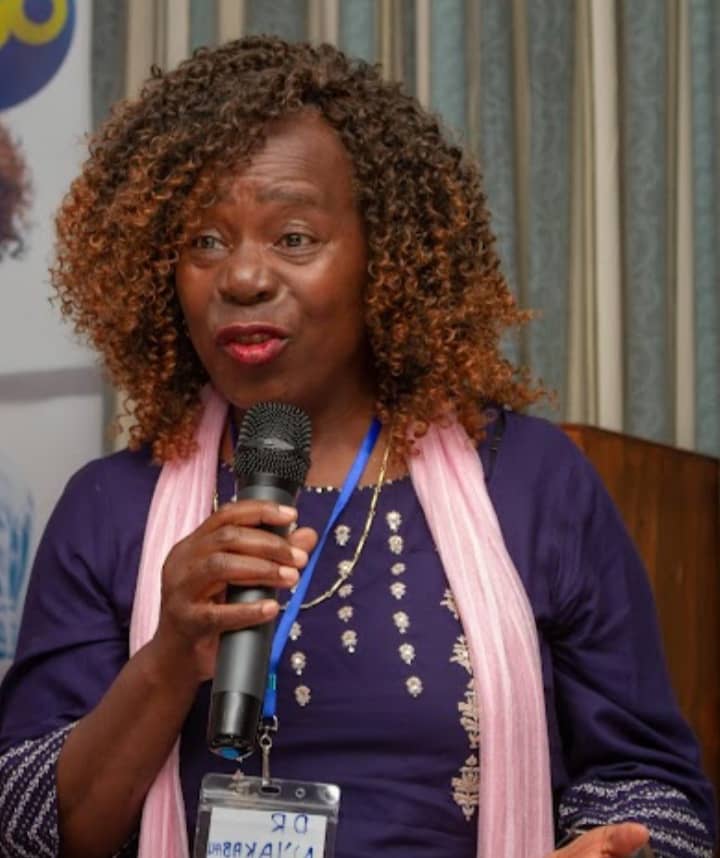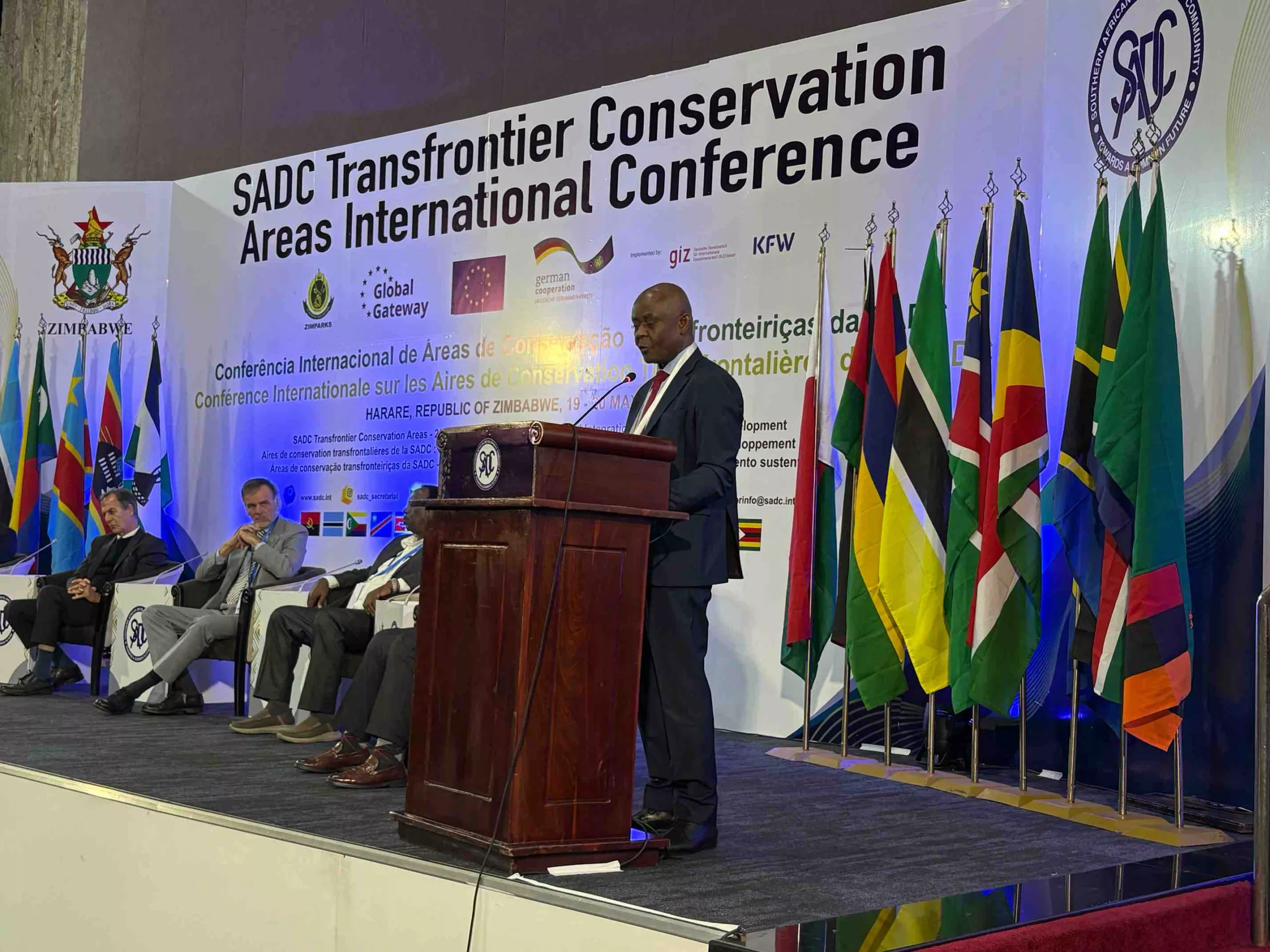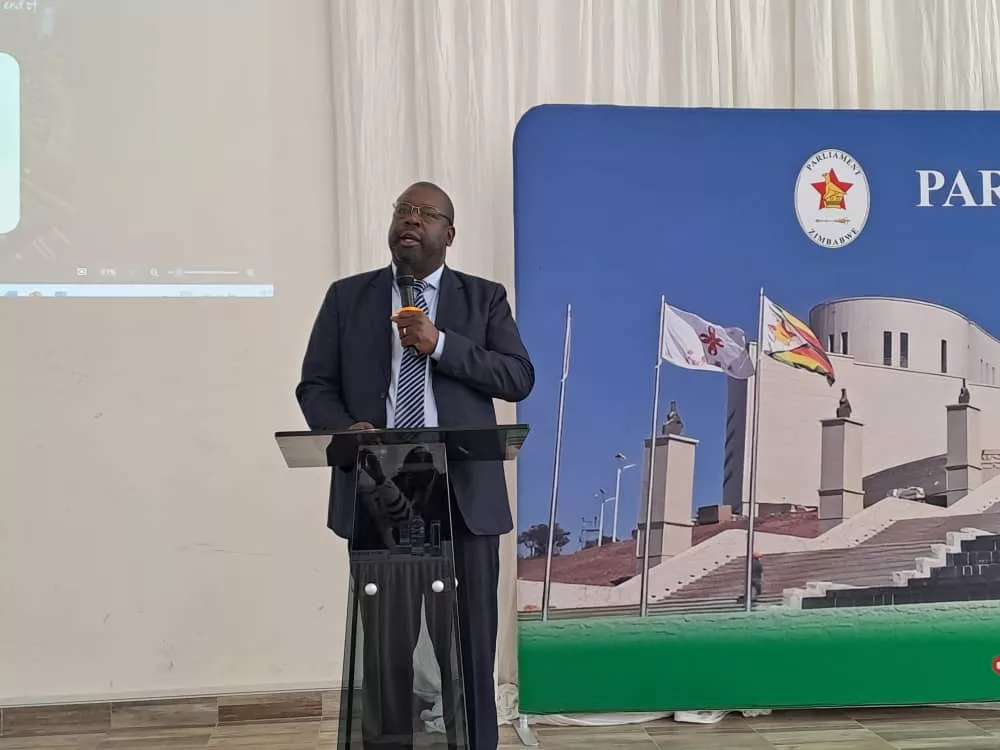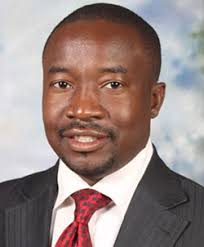|
Getting your Trinity Audio player ready...
|
By Catherine Murombedzi
“Raising a child with special needs is so complex, and painful, I hope I will not break down. If I become emotional, bear with me, please. May I have music play in the background to open my journey? Music is one of my coping mechanisms,” said Dr. Anna-Mary Nyakabau.
She was speaking at the Zimbabwe Women Doctors Association (ZWDA) Beauty and Wellness Day, at a local hotel in Harare recently.
A soothing song played in the background, encouraging humanity to “be patient… joy is on the way, …zvichanaka chete,” played the song.
Never give up, let’s support each other as women, was the emphasis by Dr. Nyakabau.
“In life, we all need pillars of support. A house without a foundation collapses. In my life, I have had pillars to support me when I was weak. At some time, I contemplated stopping going to work, only to realise that I can delegate duties to some people. My spirituality, born in Trishill Mission in Rusape, and my Catholicism have helped me sail through life. Some spiritual being that keeps you going is important. Besides having a child with special needs. I have a child, who is an adult but has a brain of a three-year-old. It is not easy at all. It is like losing your child, yet you have him daily, a child with no speech.”
Dr Nyakabau gave a disclaimer, “what works for me may not necessarily work for you.”
“I am a mother and a doctor, hoping to help someone struggling to take care of a child with special needs, to inspire the goodness of humanity,” said the Doctor to an audience that stood still in the mind, feeling the pain, feeling her shoes.
Doctor Nyakabau went down the day in Simba’s life, the turbulence and calm when people understand what it is to have and love Simba.
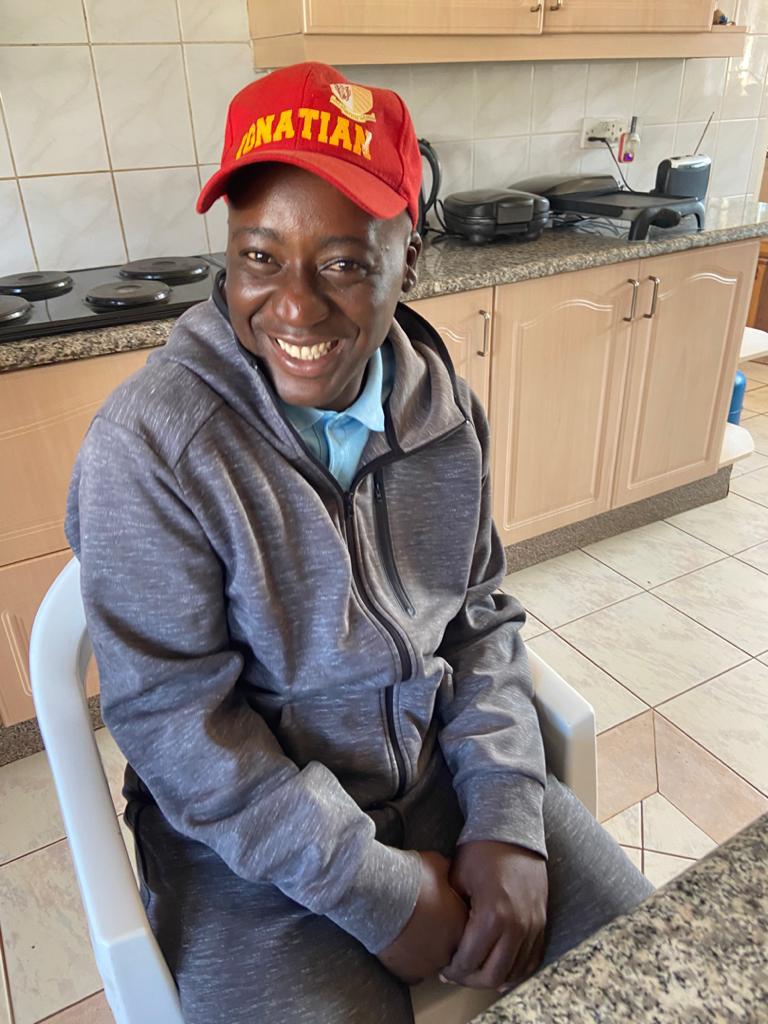
“Simba turned 40. He is very loving and physically fit. If going on holiday, I need help. Lucky has been our male helper since Simba was a baby. On one vacation, Simba sneaked out and entered the next room and the occupant was scared. I explained to the occupant that he is a minor in deeds, has no speech, and has special needs. The lady became emotional and wept.
That is how deep, raising Simba is. It is in itself, a journey in her life journey. Being able to speak today is part of my healing.
“After Simba failed to speak, we took him to doctors, tests were run, we got him hearing aids, nothing worked. As female doctors, we earned less than our male counterparts then. Using public transport, on the way home after a night at work, I would fall asleep on the bus, with chances of bypassing my bus stop. Waking up two bus stops away, I walked back. At times, I asked the person sitting next to wake me up when I reached my destination. I got home tired of a child with special needs.
“I feared getting a second child. I went ahead and fell pregnant. The child was pre-term and I was in that turmoil. Is my child not going to face challenges again? It was a utopian feeling when the baby said his first word ‘Mama’.
“I had another child. I am grateful, I did not meet challenges requiring special needs. With my older boy at Zimcare where people said “SASCAM order”, some people blamed me. One PED at a specialist centre in Harare blamed me. She said I did not give my son enough time. It was adding injury to an already hurting mom.
“There I was, a medical doctor lost in my own world, blamed for giving birth to a child with special needs. I am still judged. This syndrome of blaming someone must end.”
“The final diagnosis was autism. With lots of trial and error, balancing work and home, adolescence set in. Simba started having fits, and lots of tests again. We borrowed to go to South Africa for specialised tests. As an adolescent, Simba became violent. He would scream and my neck was scratched. The nights were sleepless. After a full day at work, I had to love and care for Simba.
“I then met Dr. Walter Mangezi, a psychiatric specialist. He helped me in managing and caring for Simba. He was placed on medication and became a calm child. He remains Mr. Cool Guy, smiling and very loving.
“It’s sad to say my marriage broke down during that time. People react differently to challenges, people have different coping mechanisms.
“My late husband moved out. I don’t blame him, and I am happy to say that I long forgave him and we became friends. May he rest in peace.
“Today, Simba is my friend, my ‘boyfriend’, so he is now my protector. I take him on those events where males are seen to protect. Driving with Simba in the passenger seat is important. He is physically fit, no one dares us.
“Years back when he was still hyperactive, one day in Church, he took to pacing up, the priest asked me to take Simba outside not to disturb the service. I stopped going to Church for some time, but then, I saw that it was not the Church, but a person, the priest. He later came on to say he was sorry and he apologised. I forgave him, he too did not understand Simba.
“Simba was my push factor to selecting Oncology, because I knew there was no night duty in Oncology, save for one odd call. I needed time to be with Simba.
“My attachment to radiotherapy became so strong, here I am – an oncologist today, having served over 30 years.
“My helpers have been my pillars. My house has a medicine chart on the wall, each treatment taken is ticked on the chart. Thanks to my support, I pay them well (I hope I do) so that I don’t have frequent employee turnover,” said Dr. Nyakabau.
Dr. Nyakabau has taken in her parents as they too are now in need of care.
“I now live with my parents. They are elderly. They too help look after Simba. All these are my support pillars,” she said showing the power of family support.
The ZWDA plenary session was silent at the end of the address. Finally, someone spoke.
“Amidst all the challenges you have Dr, you have a big heart,” said a young doctor.
Dr. Nyakabau spoke on how raising Simba has helped her shape the mother aspect to other children.
“My young son is so considerate. He too is a medical doctor, I proudly call myself, ‘mai va doctor’ a doctor’s mother,” she beamed with joy, taking the session from sorrow to a smile.
“Anna is an inspiration to society. She does not hide her son. After her husband left due to challenges raising Simba, she continued to care for others. As young doctors, find spirituality, you think you have all the science in the world,” said Dr. Virginia Masunda, a medical doctor, a friend since their high school days at St Ignatius College at Mary Ward House.
Dr. Nyakabau works with various networks and is proud of Safe Haven, a group for Mothers led by one Sihle. The group helps even with various issues ranging from menstruation. Even adolescents with no special needs become demanding and can upset the normal life, so let’s be there for each other,” said Dr. Nyakabau.
The session was difficult, traumatising, and needed thought processing. The house took a moment to take a deep breath as they all processed the ability in us, despite going through difficult times.
Dr. Nyakabau is the founder of Cancerserve Trust, an organisation striving to bring cancer services and access to the poor.
Recently, Cancerserve, through Parirenyatwa Group of Hospitals is in an initiative to save women who had breast cancer and underwent the procedure and chemotherapy. The survivors require tamoxifen to suppress the recurrence of the cancer cells.
“Tamoxifen is a long-term treatment taken for five or more years. It is a targeted Therapy, (TT). By targeting, it searches for specific components to reduce the multiplication of cancer cells.
“The idea became reality. Partners were sought locally and abroad, with patients, and individuals donating too, Spar Mabelreign, Innscor, and Laurelshinper from America came on board. The medication has arrived to save women from breast cancer relapse,” said Dr. Nyakabau.
“People want cancer treatment to be free, but it can not happen overnight. There is a need for people to realise that it is a process. We can’t wake up one day and the government finds money for all these cancer treatments. We have to work together with them to see to it that we introduce these programs, slowly but surely, until it is possible for cancer treatment to be free. This may take a few years but it will happen,” said Dr. Nyakabau.
As an adviser to the Ministry of Health and Child Care on Cancer, she is working on a national Cancer Strategy, with experts and partners.
With breast cancer being the second most common cancer among women, an estimated 2000 new cases were diagnosed and more than 900 deaths in 2019. (https://.cancerzimbabweorg).
With most cancer cases diagnosed in the late stages, mortality is high. Tamoxifen is an evidence-based effective treatment and more partners are required to mitigate the national cancer response.
● Feedback: [email protected]


